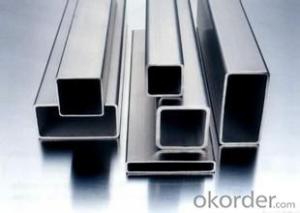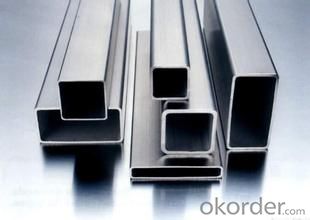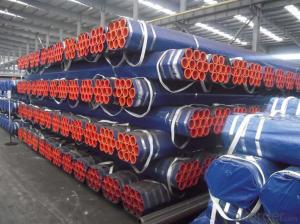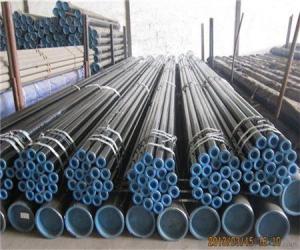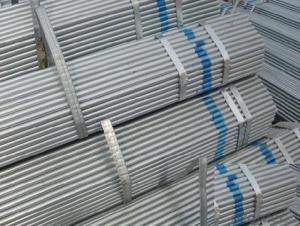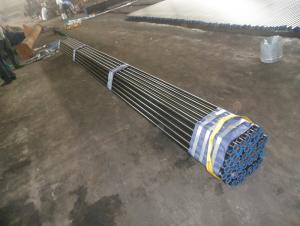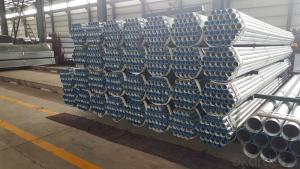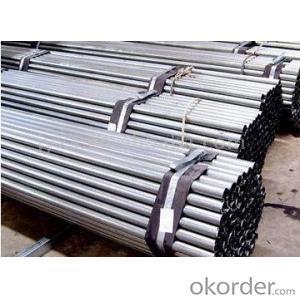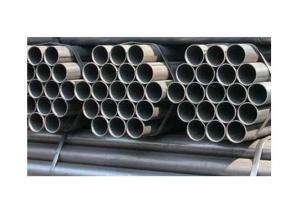Large diameter stainless steel square tube
- Loading Port:
- China main port
- Payment Terms:
- TT OR LC
- Min Order Qty:
- 5 m.t.
- Supply Capability:
- 3000 m.t./month
OKorder Service Pledge
OKorder Financial Service
You Might Also Like
Packaging & Delivery
| Packaging Detail: | In plastic wrapper/wooden case/according to your requirements |
| Delivery Detail: | In 15 days |
Specifications
stainless steel square tube/pipe
T :o.3-100mm
OD:6-1000mm
Finish: bright
Quality: Top quality tube stainless steel
stainless steel square tube/pipe
Thickness:1-100mm
Outer Diameter:10-1000mm
Welding line type: ERW
Item | High quality stainless steel tube price |
Standard | ASTM A240,GB/T3280-2007,JIS4304-2005,ASTM A167,EN10088-2-2005,etc |
Material | 310S,310,309,309S,316,316L,316Ti,317,317L,321,321H,347,347H,304,304L 302,301,201,202,403,405,409,409L,410,410S,420,430,631,904L,Duplex,etc |
Thickness | 1-100mm |
Outer Diameter | Customized |
Welding line type | welded or seamless |
Package | Standard export package, suit for all kinds of transportation, or as required. |
Price term | Ex-Work, FOB, CNF, CFR, CIF, FCA, DDP, DDU, etc |
Payment term | T/T,L/C,DP,Western union |
MOQ | 500Kg |
Application | Stainless steel tube applies to construction field, ships building industry, Stainless steel tube can be made according to the customers’ requirements. |
Contact | If you have any question, please feel free to contact us. We believe customers first! |
- Q: Can steel pipes be used in earthquake-prone areas?
- Indeed, in areas prone to earthquakes, steel pipes have the potential to be employed. Steel, as a durable and sturdy material, possesses the capacity to endure the forces generated during an earthquake. The malleability and pliability of steel facilitate the absorption and dissipation of seismic wave energy, thereby decreasing the likelihood of structural failure. Furthermore, the ability to weld steel pipes enables the construction of resilient and earthquake-resistant edifices. Nevertheless, it is crucial to adhere to appropriate engineering and construction practices to guarantee the proper installation and connection of steel pipes, thereby maximizing their capacity to withstand earthquakes. Additionally, it is imperative to consider local building codes and regulations to ensure compliance and safety in earthquake-prone regions.
- Q: How do steel pipes perform in high-altitude applications?
- Steel pipes perform well in high-altitude applications due to their strength, durability, and resistance to extreme weather conditions. They can withstand the low temperatures and high winds typically found at high altitudes, making them a reliable choice for various industries such as oil and gas, construction, and infrastructure development. Additionally, steel pipes have the ability to maintain their structural integrity under high pressure, making them suitable for transporting fluids and gases at high altitudes.
- Q: Can steel pipes be used for transporting liquids and gases?
- Indeed, both liquids and gases can be transported using steel pipes. Renowned for their durability, strength, and resistance to corrosion, steel pipes are highly appropriate for various purposes, including the conveyance of fluids and gases. Industries like oil and gas, water supply, sewage systems, and chemical processing plants frequently employ steel pipes due to their reliability and efficiency in transporting liquids and gases across extensive distances. As a result, the transportation of these substances is accomplished securely and efficiently with the aid of steel pipes.
- Q: What is the difference between steel pipes and concrete pipes?
- Steel pipes and concrete pipes differ in their composition, construction, and characteristics. Steel pipes are made from steel, whereas concrete pipes are made from a mixture of cement, sand, aggregate, and water. Steel pipes are known for their strength, durability, and resistance to corrosion, making them suitable for high-pressure applications and underground installations. Concrete pipes, on the other hand, are renowned for their affordability, ease of installation, and resistance to fire. They are commonly used in stormwater drainage systems and sewerage networks. Overall, the choice between steel pipes and concrete pipes depends on the specific requirements of the project, such as budget, load-bearing capacity, and environmental factors.
- Q: Can steel pipes be used for oil well casing?
- Yes, steel pipes can be used for oil well casing. Steel pipes are commonly used for oil well casing due to their strength, durability, and ability to withstand high pressure and extreme environmental conditions.
- Q: What are the advantages of PVC pipe and galvanized steel pipe?
- This is different in different fields, in fact, the combination of PVC pipe and galvanized steel pipe becomes plastic steel pipe.The steel plastic pipe is in the internal and external combined with a layer of plastic pipe material and obtained a pipe, it has high mechanical strength, the steel pipe has the advantages of high impact resistance, and corrosion resistance of plastic material, has the advantages of high and low grade health fluid resistance and scaling.The steel pipe used by our company is produced by Benxi Steel, which is well known both at home and abroad. It has the advantages of low phosphorus, low sulfur and high mechanical performance. It can meet the requirements of users.
- Q: What are the different coatings applied to steel pipes?
- There are several different coatings applied to steel pipes, including epoxy coatings, polyethylene coatings, zinc coatings (galvanization), and fusion bonded epoxy coatings. These coatings are used to protect the steel pipes from corrosion, increase their durability, and improve their performance in various environments.
- Q: What is the difference between steel pipes and aluminum pipes?
- The main difference between steel pipes and aluminum pipes lies in their composition and properties. Steel pipes are made of an alloy of iron and carbon, which provides them with excellent strength and durability. They are often used in applications that require high-pressure or extreme temperatures. On the other hand, aluminum pipes are composed of aluminum, a lightweight metal that offers good corrosion resistance. Aluminum pipes are commonly used in industries where weight is a concern, such as aerospace and automotive. Overall, the choice between steel and aluminum pipes depends on the specific requirements of the application.
- Q: Can steel pipes be used for offshore applications?
- Yes, steel pipes can be used for offshore applications. Steel pipes are commonly used in offshore industries due to their durability, strength, and resistance to corrosion. Offshore applications such as oil and gas exploration, drilling, production, and transportation of fluids and gases often require the use of steel pipes. These pipes are designed to withstand harsh and corrosive environments found in offshore locations, including exposure to saltwater, extreme temperatures, and high pressure. Additionally, steel pipes can be manufactured to meet specific requirements for offshore projects, including size, thickness, and material grade, to ensure safety and reliability. Overall, steel pipes are a reliable and widely used choice for offshore applications.
- Q: How are steel pipes connected to other materials like concrete or plastic?
- Steel pipes are commonly connected to other materials like concrete or plastic through various methods. One common method is through the use of fittings. Fittings are specialized components that facilitate the connection between different materials or pipe sections. These fittings come in various shapes and sizes, such as elbows, tees, reducers, and couplings, and they are designed to provide a secure and leak-proof connection. When connecting steel pipes to concrete, one method is to use concrete anchors. These anchors are embedded into the concrete structure and provide a stable base for securing the steel pipe. The pipe is then attached to the anchor using clamps or brackets. Connecting steel pipes to plastic materials can be achieved through the use of transition fittings. These fittings are specifically designed to join steel pipes with plastic pipes. They typically feature different connection mechanisms on each end, such as threads or compression fittings, allowing for a secure and reliable connection. In some cases, steel pipes can also be connected to other materials using welding techniques. Welding involves melting the ends of the steel and the other material together to create a strong joint. This method is often used for connecting steel pipes to steel structures or components. Overall, the connection of steel pipes to other materials like concrete or plastic requires the use of specialized fittings, anchors, or welding techniques. These methods ensure that the connection is secure, durable, and able to withstand the demands of the application.
Send your message to us
Large diameter stainless steel square tube
- Loading Port:
- China main port
- Payment Terms:
- TT OR LC
- Min Order Qty:
- 5 m.t.
- Supply Capability:
- 3000 m.t./month
OKorder Service Pledge
OKorder Financial Service
Similar products
Hot products
Hot Searches
Related keywords
